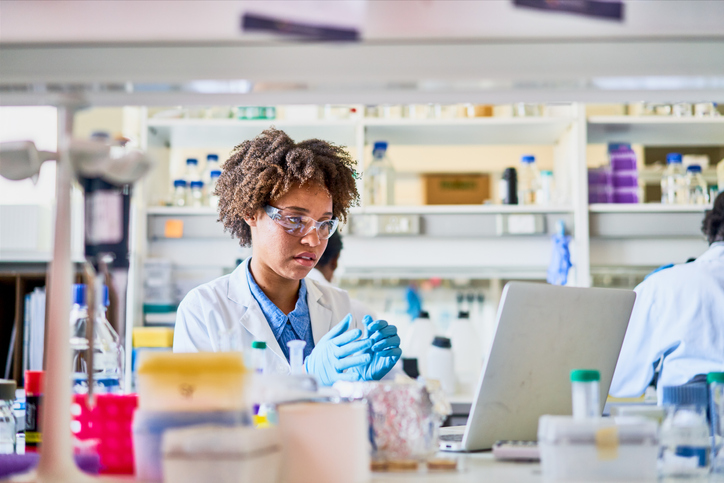Experts Say Diversity Is Needed For Effective Clinical Trials For COVID-19
Experts Say Diversity Is Needed for Effective Clinical Trials For COVID-19

Source: Stígur Már Karlsson /Heimsmyndir / Getty
There’s a long history of African Americans enduring medical racism in America, even before and unfortunately after 1932’s infamous Tuskegee experiment. Fast forward to 2020 and talk of COVID-19 vaccine trials makes folks recall stories of Black people being abused, neglected and deceived by the healthcare system and stakeholders. Now those painful pieces of history continue to influence whether Blacks opt to participate in the COVID-19 vaccine trials.
While Blacks make up 13 percent of the population, they account for 21 percent of COVID-19 related deaths. And The COVID Tracking Project reports more than 40,000 Black people have died from the infectious disease. Other disproportionately impacted populations include Latinx, American Indians/Alaska Natives, essential workers (which includes critical retail, trade and transportation employees) and older adults, specifically those over the age of 65.
The reality is that changing health outcomes with vaccines requires African Americans, and other vulnerable populations, to take an informed leap of faith.
Experts such as Michele Andrasik, Ph.D., EdM, Director of Social and Behavioral Sciences and Community Engagement at the COVID-19 Prevention Network, encourage people to learn about the research being done to determine if participation is right for them. She highlights the importance of building trust, correcting misinformation and dispelling myths. It requires community and faith-based groups to connect with people who have many reasons to mistrust medical institutions. It is important that the scientists committed to this work prove that they are trustworthy..
“We’re doing with the COVID trials what we’ve done with the HIV trials, which is building trust, focusing on relationships, ensuring that people have the information they need,” Andrasik told The BodyPro this summer. “And explaining how we are expediting these trials without cutting corners or compromising safety.”
Many wonder how scientists have arrived at the final testing phase so quickly. According to the Fred Hutchinson Cancer Research Center (Fred Hutch), the coordinating center for the vaccine trials of the COVID-19 Prevention Network, no phases were skipped, but they did overlap to save time. The government began investing billions of dollars to start producing vaccines after the early study phases and the bureaucracy that normally slows down trials was removed.
Each stage of clinical trial research requires a certain number of volunteers for safety and immune responses (Phase 1); safety, dosage and scheduling (Phase 2); and safety and effectiveness (Phase 3). A diverse group of people have to be represented to ensure that the vaccine appears safe and that it works for everyone, which is why there’s a push to prioritize communities of color and older adults.
A recent Pew Center Survey conducted between Sept. 8-13, 2020 found that just 32 percent of Black adults would definitely or probably get the COVID-19 vaccine, compared to 52 percent of white adults. This is a concern because the vaccines themselves don’t save lives; vaccinations do.
The safety issue has many legs. There’s a long-held belief that vaccines introduce viruses into healthy bodies, and some fear being purposefully exposed to the acute respiratory illness. But that isn’t accurate for COVID-19 vaccines. The trials do not expose volunteers to the actual virus, and cannot cause the illness. Instead, according to Fred Hutch, vaccines teach the body to recognize an invader so that the body’s immune system goes into action with fighter cells and proteins that block or control the virus, helping the body prepare for coming in contact with the virus in the future.
Getting the full scope of information may sway some people, but the pandemic has also been met with misinformation and the circulation of myths resulting in beliefs that inoculations are linked to health challenges and disorders. However, a 2013 Center for Disease Control (CDC) study, and many others, have proven that vaccine ingredients do not cause disorders such as autism. The study reviewed antigens from vaccines given during the first two years of life, and the result showed that the total amount of antigen from vaccines received was the same between children with autism and those who didn’t have autism spectrum disorder.
The COVID-19 Prevention Network is dedicated to putting an end to the uncertainty around this disease and the vaccine trials. For more information about the studies and what to expect as a volunteer, visit PreventCOVID.org.

















